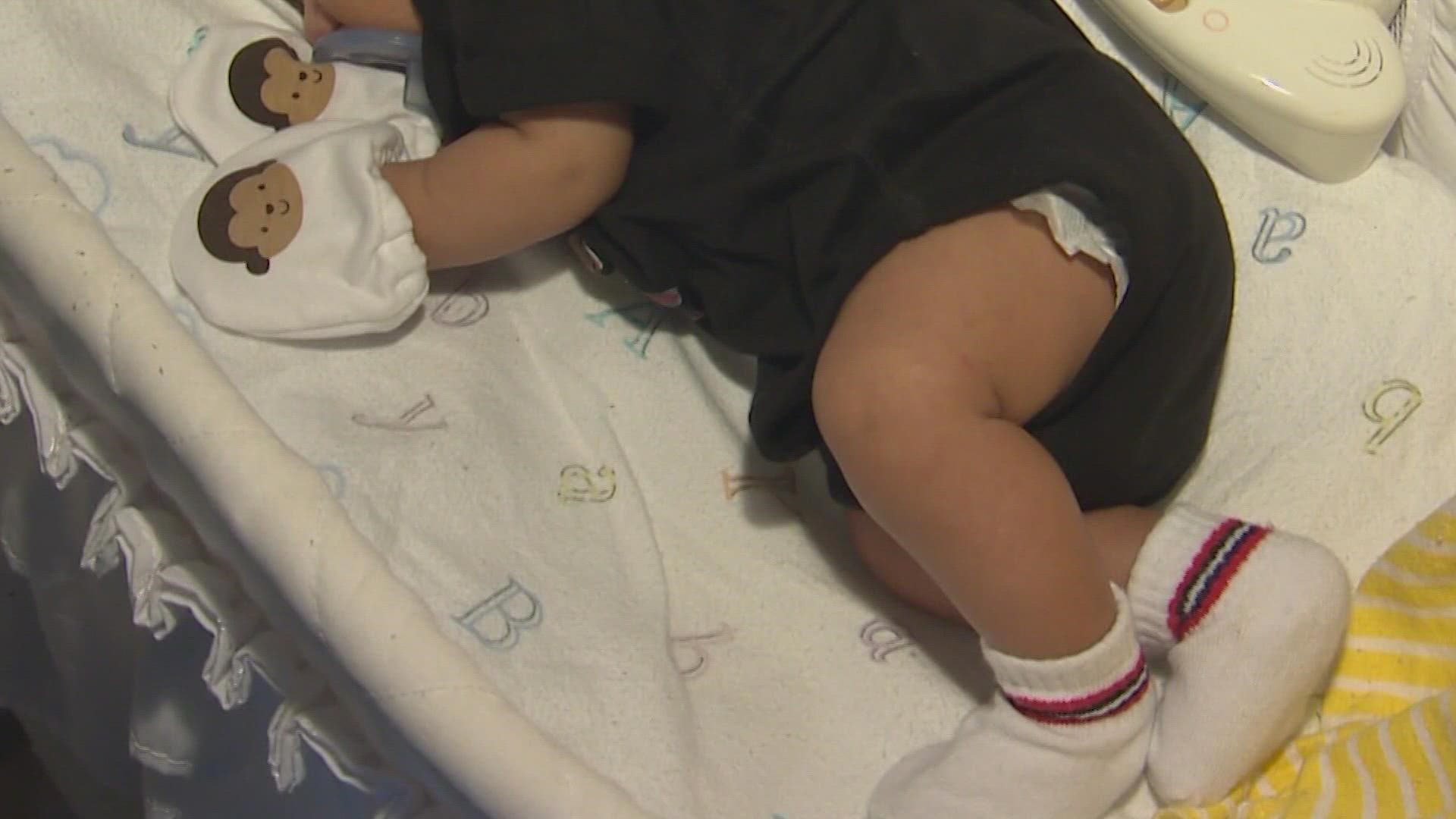WINSTON-SALEM, N.C. — As a new parent, one of the scariest things you hear about is sudden infant death syndrome, or SIDS. It's often referred to as a medical mystery in which a baby goes to sleep and never wakes up.
The CDC said there are about 3,400 cases of SIDS a year in the U.S.
Dr. Alison Gardner, lead pediatrician for Novant Health in Winston-Salem, said after an autopsy and scene investigation into those deaths, about 1,300 are classified as SIDS. She said in North Carolina, the rate is about 113 infants dies of SIDS per 100,000 live births.
"The numbers aren’t huge but they are huge in impact. I think the scariest part is that we have not been able to identify an ultimate cause like why is this happening," Dr. Gardner said.
Dr. Gardner said most infants that die from SIDS are between 2-4 months old.
New research may be an answered prayer for many.
The study published in the Lancet medical journal found that levels on an enzyme called butyrylcholinesterase, or BChE, were significantly lower than in babies who later died of SIDS.
Dr. Gardner said this is related to a baby's ability to arouse out of sleep. She said the study looked at 67 infants who had died in Australia. 26 had SIDS and the BChE enzyme.
"It is a very exciting finding in that it could explain why this is happening. It’s, however, a very small study and it’s a very first step in that I can understand that there’s a lot of excitement. I’m excited. I’m excited for the families that I know who have suffered through this, that people around the world are working on this and are continuing to work on this because it is so important," Dr. Gardner said.
Until more research and studies are done, Dr. Gardner said parents should follow the American Academy of Pediatrics' recommendations.
Dr. Gardner said since the 1990's, the 'Back to Sleep' campaign has lowered the rate of SIDS by 50%.
Here are those recommendations:
- Babies should sleep on their backs
- Babies should sleep on a firm mattress without blankets or bumpers
- Avoid overheating
- Have baby sleep in parent's room in a bassinet or crib for about 6 months
- Avoid tobacco use around baby
Dr. Gardner also said breastfeeding and the use of a pacifier can help lower the risk of SIDS.
Overall, she sees this as hopeful for all families.
"If you’ve had an infant pass away from SIDS, sometimes for these families, it can feel very lonely very isolating. They can tend to blame themselves as parents do and they shouldn’t. Parenting is as hard enough as it is," Dr. Gardner said.

